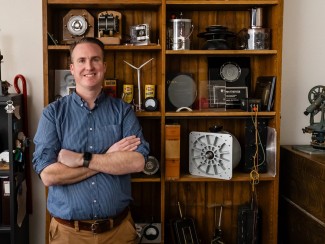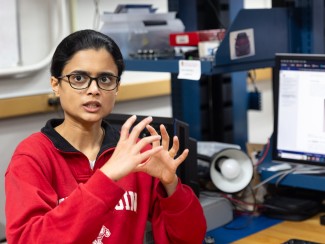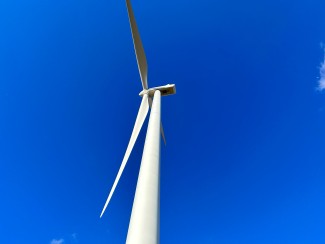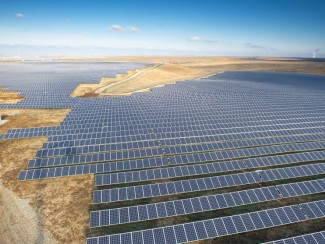Some state and federal officials say they're more excited about adding nuclear power in Wisconsin than they have been in decades. But potential cost and disposal of highly radioactive nuclear waste remain key concerns.
The state only has one commercial nuclear power plant still running — the twin reactor plant at Point Beach, 90 minutes north of Milwaukee. But various companies are working on new designs for nuclear plants across the U.S., including a design called a small modular reactor that can be built in one location, moved and operated elsewhere.
Paul Wilson chairs the UW-Madison Department of Engineering Physics, which has a very small research reactor. He told a Madison forum Thursday that smaller commercial plants appear to be the way to go in the U.S.
"Historically, our nuclear power plants have been large infrastructure projects, plagued with all the challenges we face across the industrial sectors in the United States and other countries with large industrial projects. We want to look toward a world where small modular reactors have a lot more factory construction, a lot more control, a lot more opportunity to learn," Wilson said.
The Customers First Coalition — an alliance of utilities, consumer groups and utility workers — held the forum. They also heard from Cheryl Moss Herman, a senior advisor at the U.S. Department of Energy.
Herman said there are new financial incentives to help nuclear energy, and that the Biden administration considers nuclear an essential part of a cleaner energy mix.
"It's the only way to reach our goal of 50% reduction in carbon emissions by the end of this decade, 100% clean electricity by the year 2035 and a net zero economy by 2050," Herman said.
Net zero means balancing the amount of climate-changing greenhouse gas that's produced from burning fossil fuels like oil, natural gas or coal, and the amount of gas removed from the atmosphere.
But Herman acknowledged the federal government is still working on interim national storage sites for nuclear waste. Currently, a lot of the waste is being stored outside nuclear plants.
Tom Content, executive director of the Citizens Utility Board of Wisconsin, said his group is studying the potential cost of new types of nuclear plants, while worried about what Point Beach owner FPL is charging We Energies for nuclear-produced electricity.
"One of the issues that has come up in recent cases is the escalating costs that We Energies customers are paying for the power-purchase agreement at Point Beach. We do hear from our members about that because of the kind of hockey stick escalation that we're seeing," Content said.
A couple years ago FPL applied to extend the operation of the Point Beach reactors all the way to about 2050. The Nuclear Regulatory Commission (NRC) told WUWM that a safety-related review of the application is done, but that other staff are updating the agency's conclusions of the potential generic environmental impacts of another license renewal.
The Point Beach licenses were initially renewed in 2005. The plant began operating in 1970.





